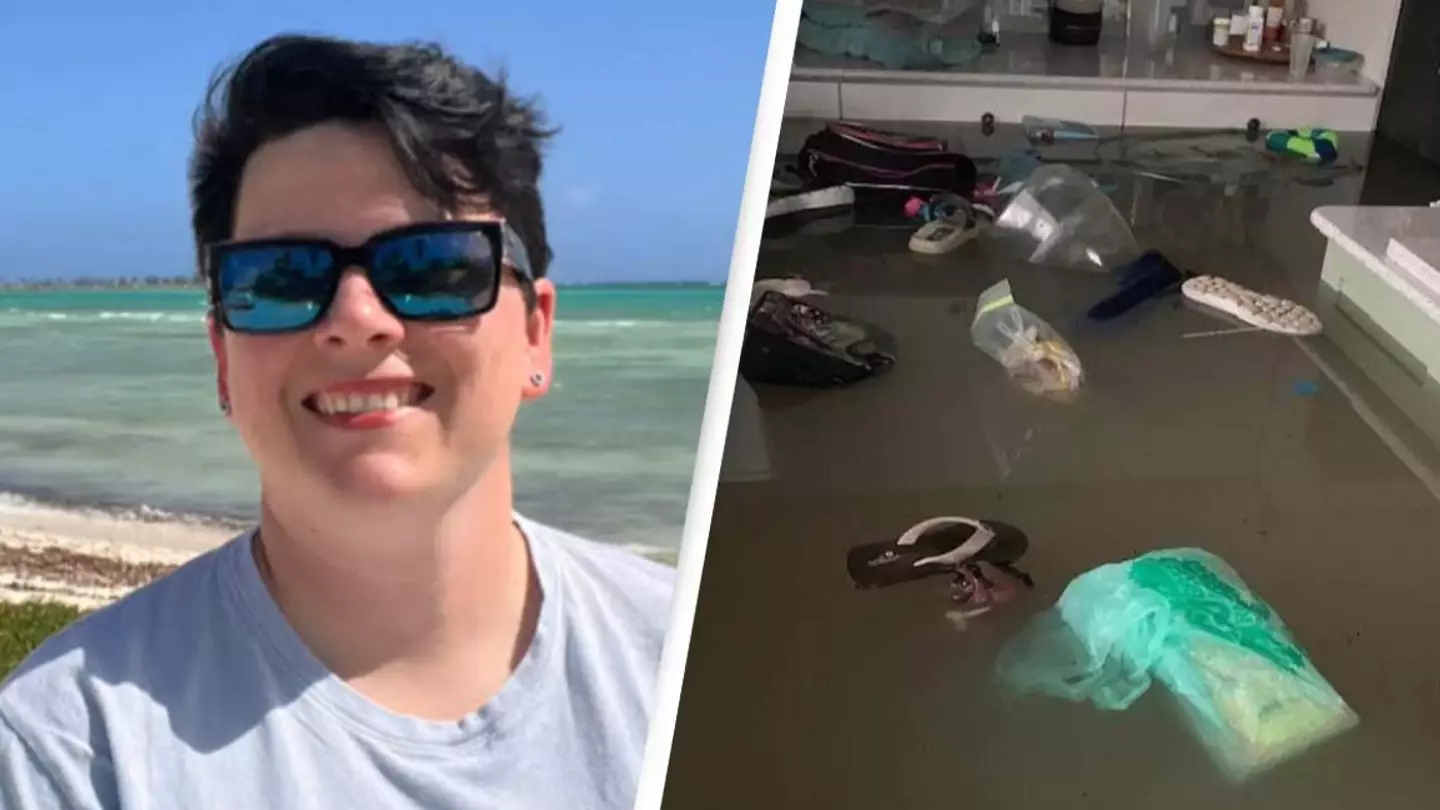
Words by Tara Pyfrom
A monster hurricane almost killed me, and it’s the last one I’ll ever experience if I can help it.
When you are born and raised with hurricanes that visit every few years, you somehow get used to them. My grandparents saw only one or two major storms in their lifetime. My parents experienced a couple as well.
Advert
Living in the Bahamas my whole life, I’ve lived through more than I can count, but I remember the names of the big ones: Floyd, Wilma, Frances, Jean, Matthew, and Dorian.
When Hurricane Dorian appeared on the radar, a history of dealing with hurricanes led to robotic preparations for an ordinary storm.
We knew to watch the weather forecast carefully and stock up on non-perishable supplies and water a few days before the storm arrived.
We’ve learned over the years what outdoor items need to be secured. We knew to have a radio, tarps, window shutters, sandbags, fuel, and even a generator on hand.
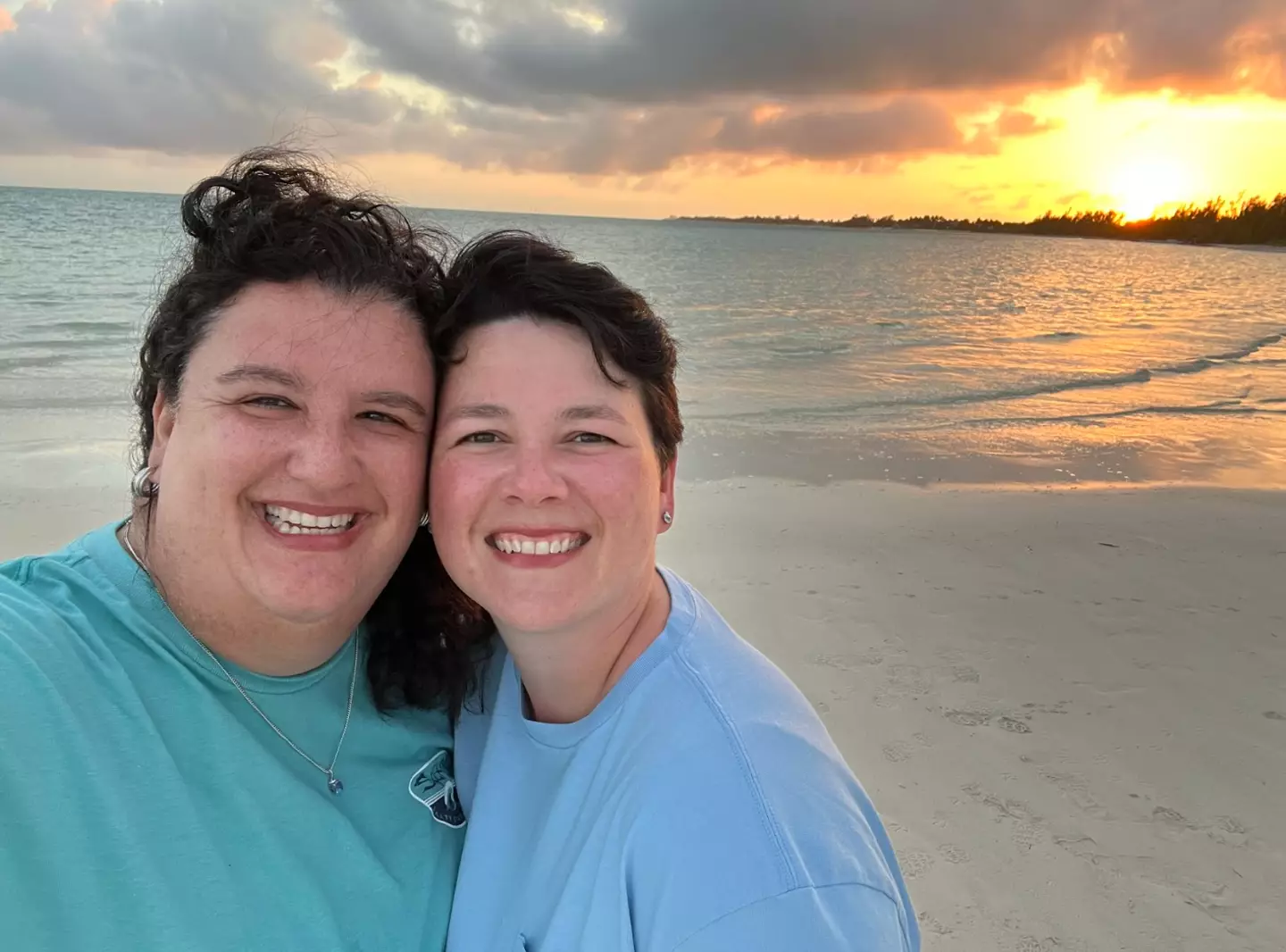
Even still, we were completely blindsided when the category 5 hurricane hit our home on Grand Bahama Island in September 2019.
As islanders, we don’t run from hurricanes. There’s nowhere to run unless you leave the country entirely; with pets, that’s not a reasonable option.
Hurricane shelters on the island were makeshift at best, mostly older buildings already needing repair, and none allowed animals.
When the 295 km/h wind reached us, it pushed a monumental storm surge of up to 7 metres of ocean across the island.
Some reports say more than 50 percent of the island was underwater. We knew some flooding might be possible, but our area was never ordered to evacuate.
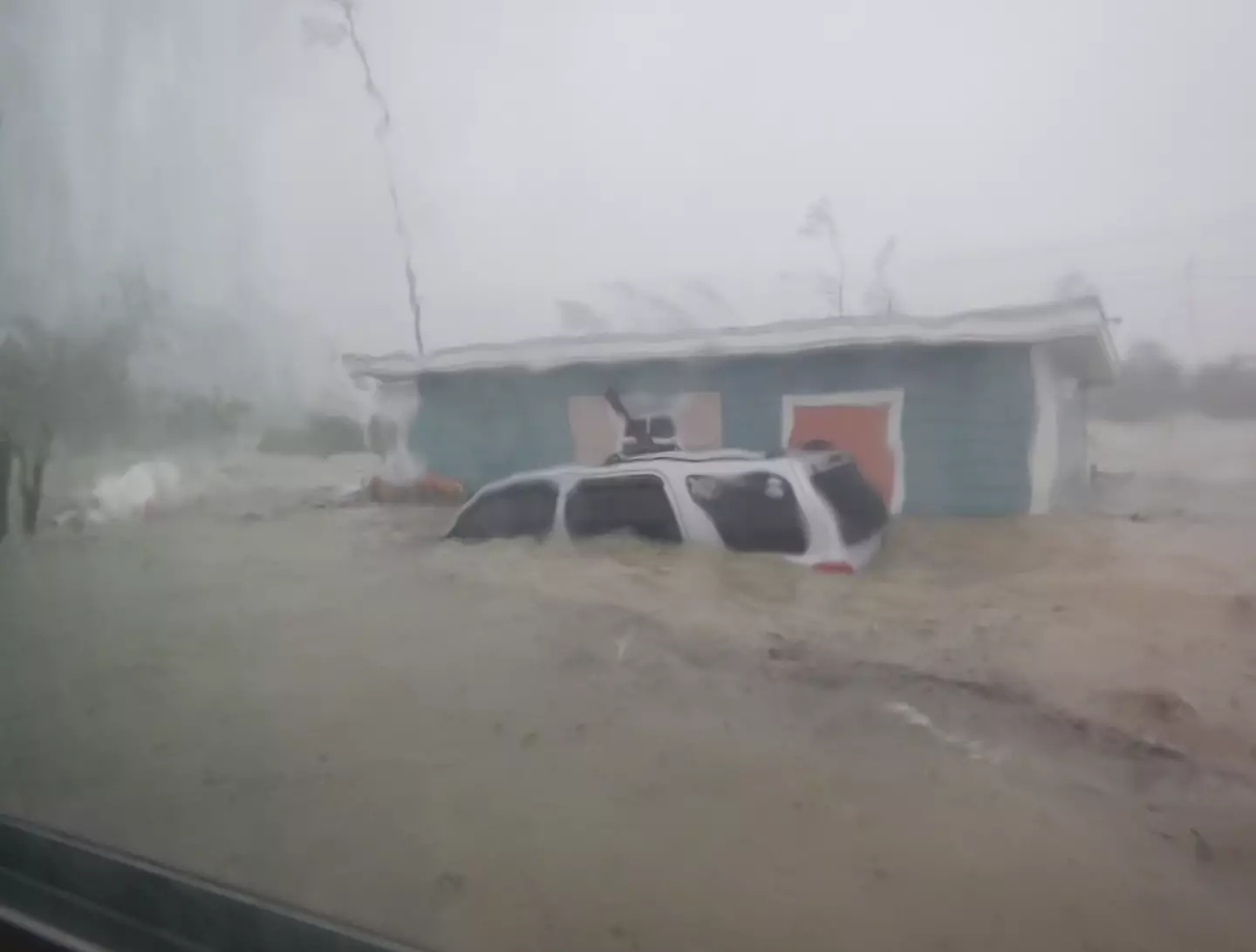
In the early morning hours, water reached the doors of our elevated house, and all hell broke loose. We tried desperately to force the sandbags to keep the water out, but they were useless as the ocean rose even higher.
We had a meter of water inside within a couple of hours. We sat on our kitchen countertops as the furniture in our house began to float. Terror struck, and tunnel vision took over.
What I feared most of all was being trapped inside our home, my wife, our six-year-old daughter, and five beloved dogs, all drowning with our heads pressed against the ceiling, gasping for air.
That image in my mind drove us outside in the middle of the worst hurricane ever recorded in the Bahamas.
Hindsight is always 20/20. We could have prepared for a major flood. We could have packed a bug-out bag with food, medicine, and important documents ahead of time.
Instead, we sloshed in slow motion around the house in panic, grabbing what we could.
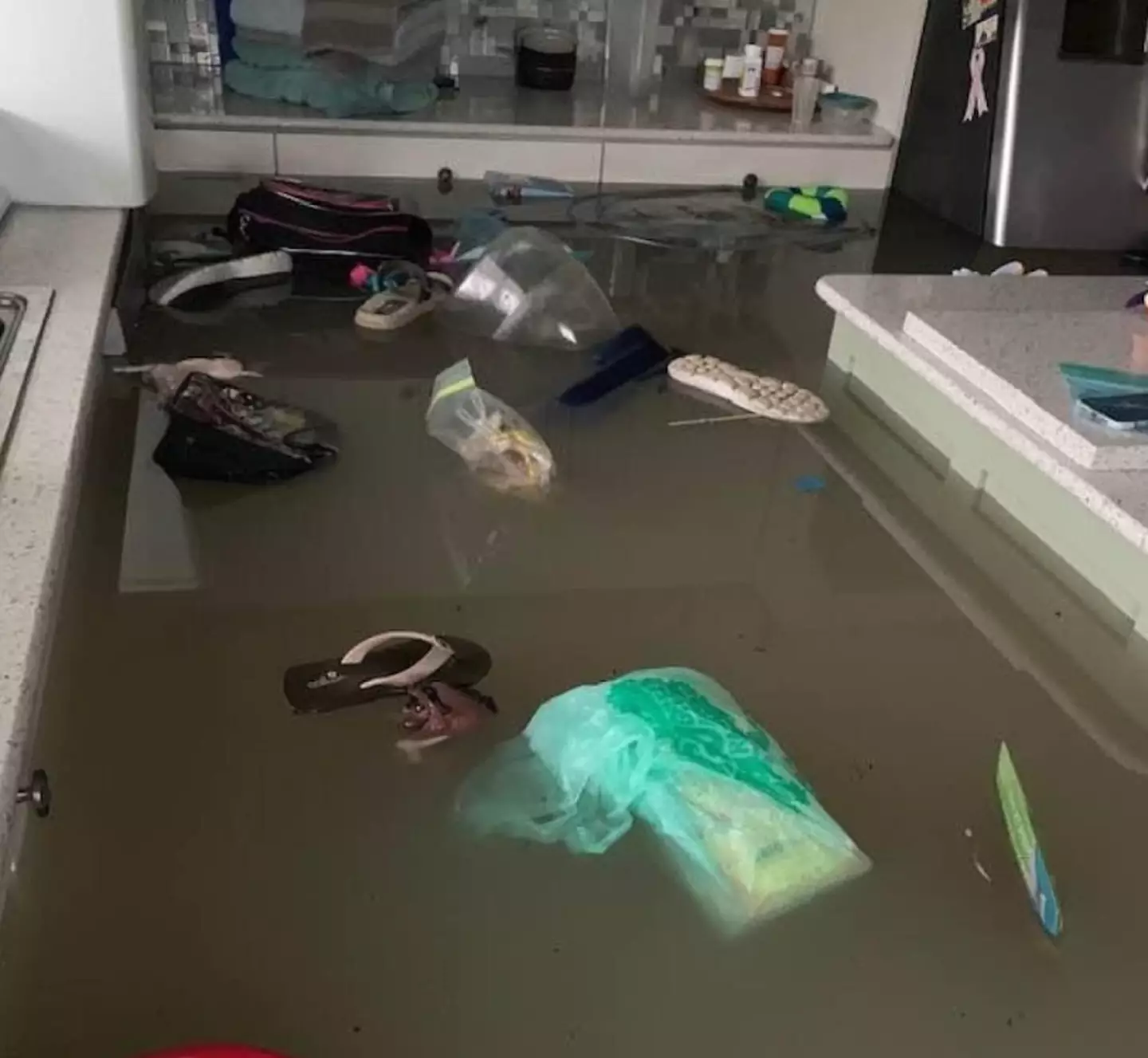
We stuffed our cell phones inside Ziploc bags to keep them dry and secured valuables on high shelves. We could have purchased life jackets or even a kayak in our storm prep. Instead, we had a pool float and a semi-buoyant cot mattress.
Outside, we struggled to stay afloat as we huddled against our house. All that mattered was keeping our young daughter and the five animals from being swept away and drowned.
Ultimately, that idealistic decision to react to what fear told me was coming proved wrong. After 30 minutes of fighting the waves and wind, we were forced back into our flooded home to avoid drowning then and there.
Back inside the house, rapidly filling like a fishbowl, we struggled with the next steps. As we paused, exhausted from hours of battling with fear and the prospect of death, we tried to work out a better plan to stay alive.
The attic was our only remaining option.
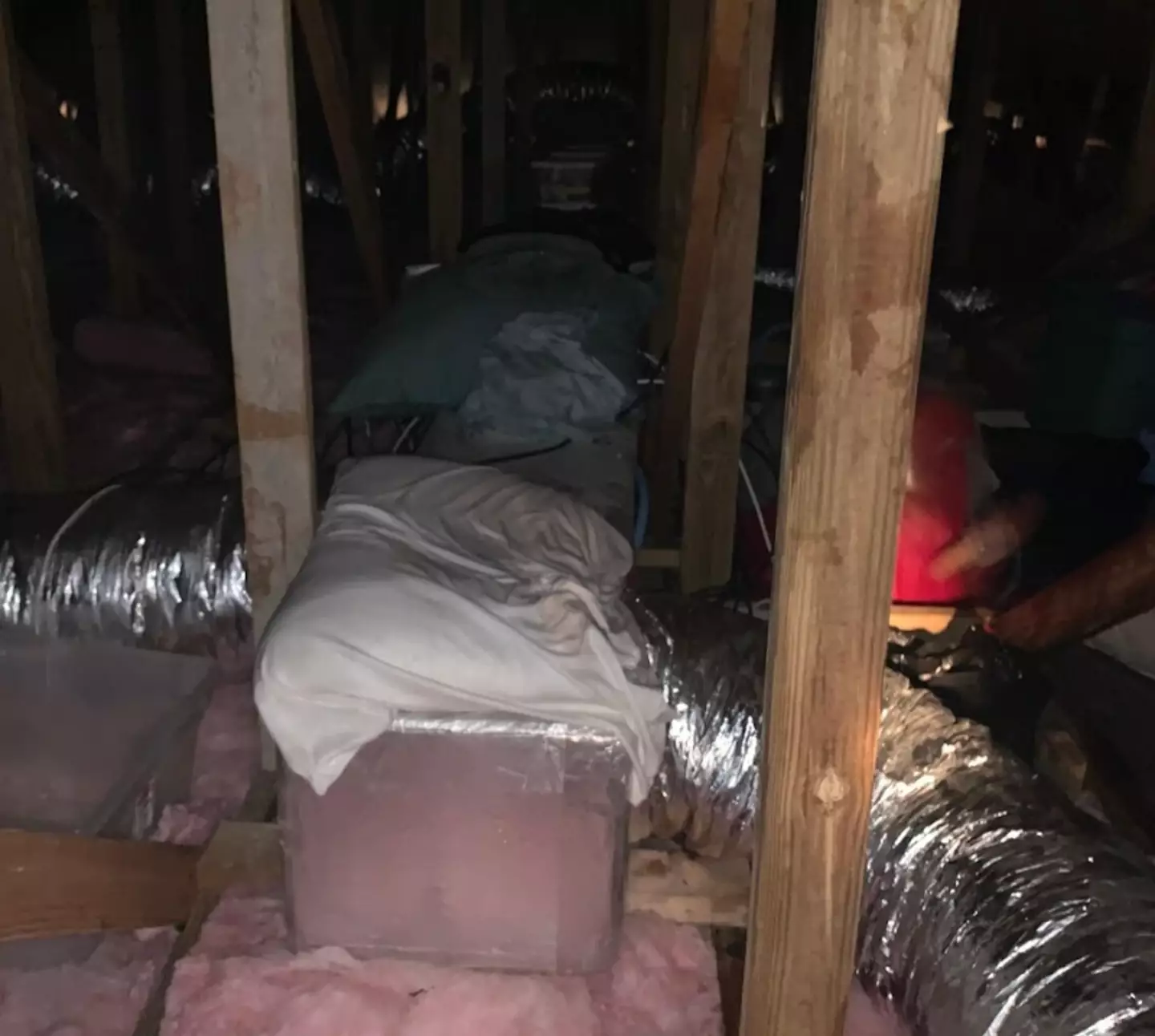
As I transported the last of our five dogs up the ladder into the attic, the water had risen high enough to cover the doorway to the closet where the attic access was located. I had to dive under the water to move from one room to another.
Even from a place of assumed safety, my idealism guided my decisions. We had no drinking water in the attic and only minimal food. I made a solo trip across the dimly lit attic space to the area above our kitchen, thinking I could stomp a hole in the ceiling to retrieve water from a high cabinet there.
Once again, the terror spurring me clouded my brain as I misjudged and fell into the flooded kitchen below.
I ended up in the exact position I had been trying to avoid all along, as the water inside the house had reached two metres and breathing room in the flooded kitchen was minimal.
I didn’t stop long enough for the absolute dread to fill me. I grabbed the drinking water and pushed it into the attic. I looked up just in time to see one dog falling into the flood water with me and the second, larger dog hanging precariously.
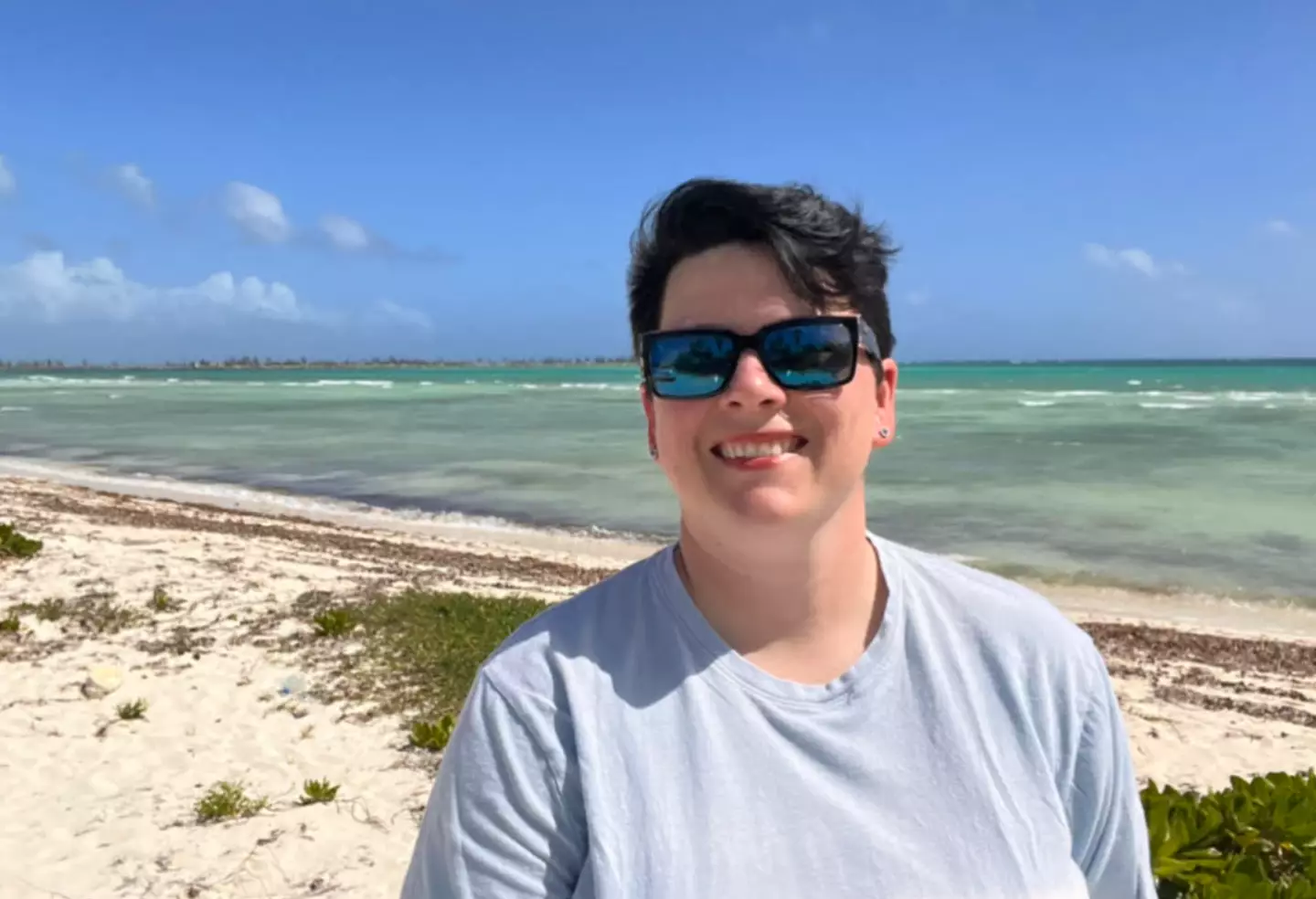
I screamed “No!” at the dog and pushed up with all my might to force her back into the attic. Then I reached for the smaller dog swimming near me and hurled her back into the attic as well.
After retrieving the drinking water and a floating Ziploc containing a set of dry clothes for our daughter, I made my first attempt at pulling myself back into the attic.
Without enough upper body strength, and running dangerously low on mental fortitude, I fell back into the water again, bruising myself as I fell.
My fear weighed heavily on me as I realized that I might be stuck until the storm passed, or I drowned, whichever happened first.
With a renewed burst of adrenaline brought on by the fight or flight response, I tried twice more to haul myself out and eventually managed to get my upper body up into the hole.
With more twisting, bruises, and scrapes, I managed to claw my way out of my worst nightmare and back into the darkness of the attic.
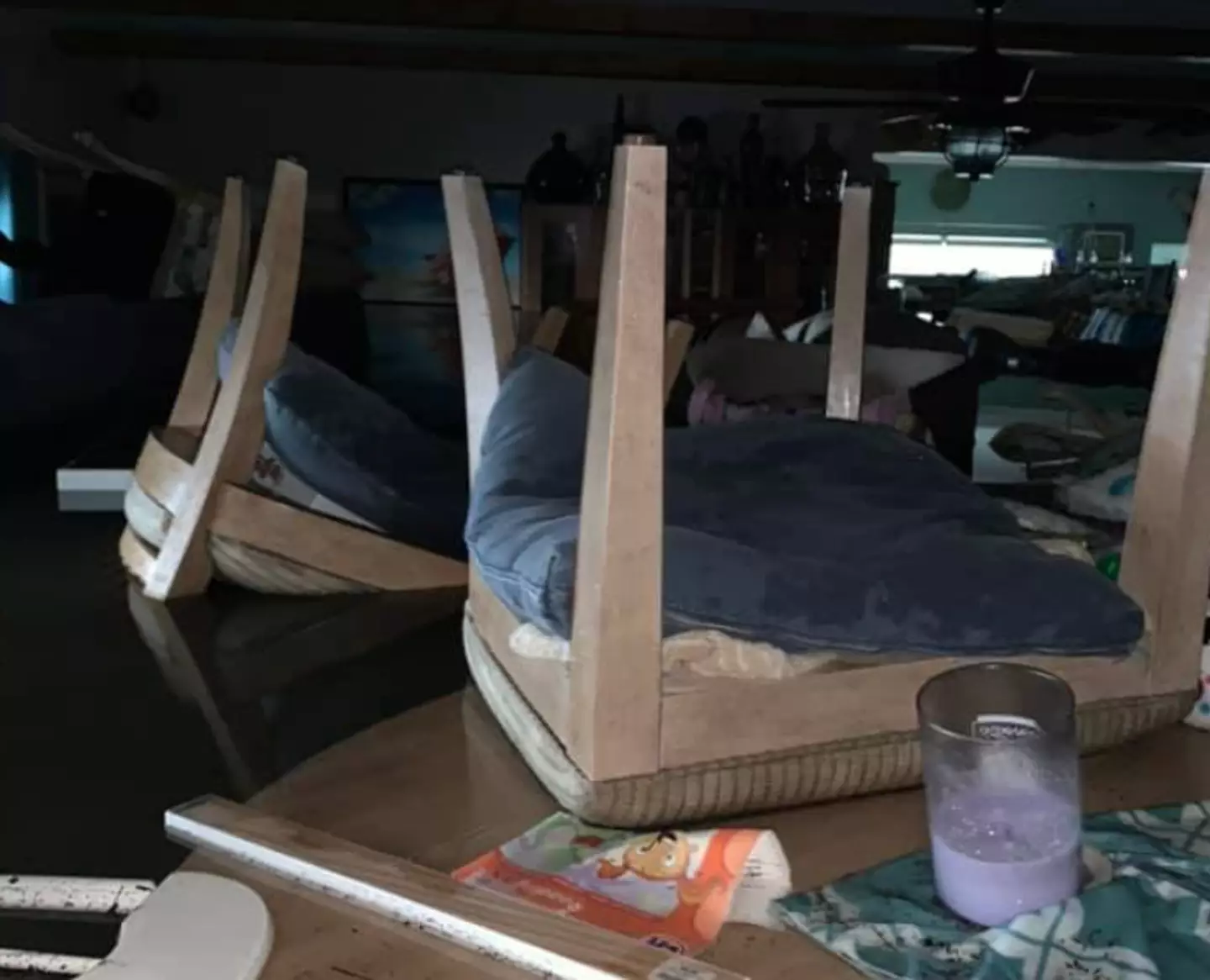
Unbeknownst to us then, Hurricane Dorian stopped moving and sat over our tiny island.
Trapped in the attic, with no contact with the outside world, we were on our own to hold on until the storm passed and rescue could begin.
For 24 hours, we sat in inky blackness and waited. We waited for the ocean to rise and drown us in a watery grave above our house. We waited for the wind to rip the roof off at any minute and take us with it.
After a full day of waiting in fear for our lives, the flood water receded, and the wind weakened over six hours.
Eventually, we were all rescued by boat in a dangerous grassroots operation organized by neighbors while the wind speeds continued at hurricane force.
Surviving turned out to be step one for us.
The aftermath on our island was apocalyptic, with millions of dollars in damage, a lack of utilities, a limited water supply, and looting that began almost immediately. We made it out alive. Many others did not.
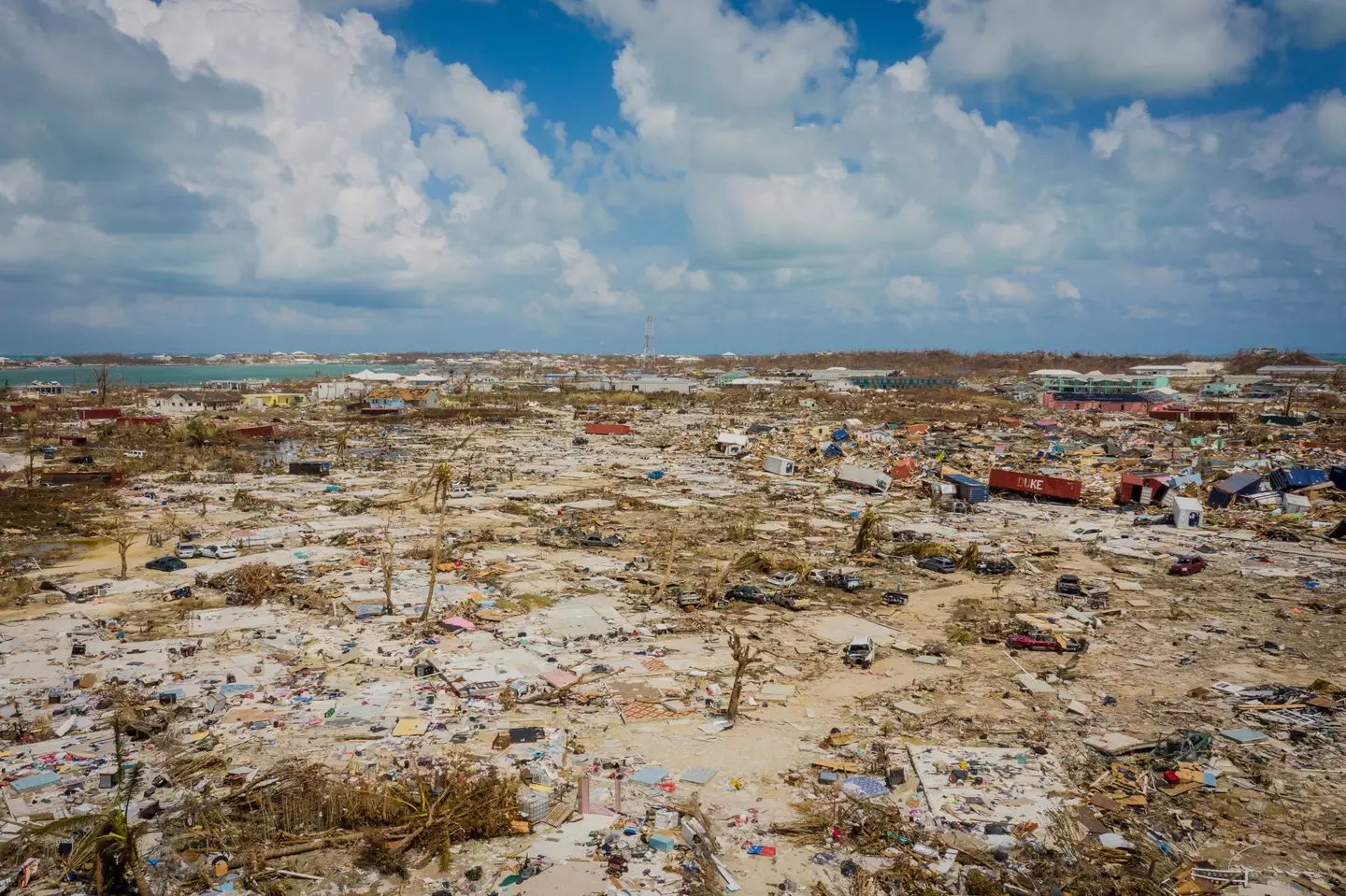
The official death toll attributed to Dorian in the Bahamas is 74. Through some miracle, we evacuated within the first 48 hours to the United States.
After several weeks of trying to pick up the pieces, we made the radical decision to give up on the country of our births. What was left of our home was not not repairable.
In the haze of trauma, we did not have the strength to face rebuilding our lives at the ocean’s edge, knowing that another storm would come again to destroy it all.
The frequency and intensity of hurricanes in the Atlantic have increased during my lifetime. More and more people are suffering from catastrophic storms.
With that in mind, we chose to trade hurricanes for snowstorms and immigrate permanently to Canada, knowing that snowstorms are far more predictable and far less deadly.
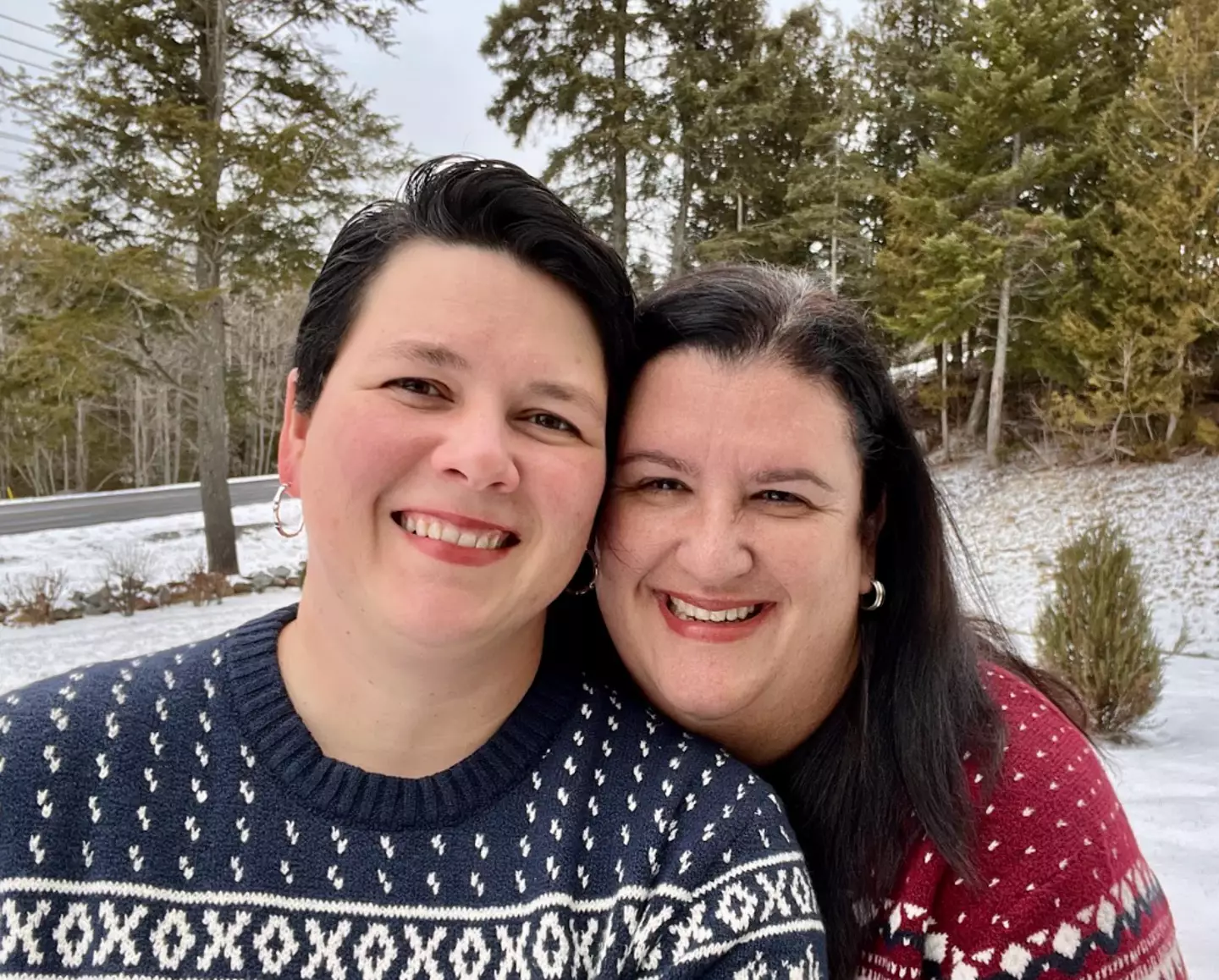
Many of our friends, though less affected by Dorian in most cases, chose to leave the country permanently in the aftermath. In a country underfunded by government agencies, recovery has been slow, with logistical issues compounded by geography.
In the end, Dorian changed us.
The trauma I carry with me now after facing my death and the death of my wife and child will stay with me permanently. Therapy has helped, but I suffer from lingering PTSD symptoms. I’ve used writing as therapy and poured my pain into a completed memoir.
My hurricane knowledge has been gained by personal experience. Many people worldwide have little to no experiential understanding of hurricanes.
Changing weather patterns mean that parts of the world, rarely as affected by these storms as the Bahamas, may just find a monster hurricane on their doorstep one day.